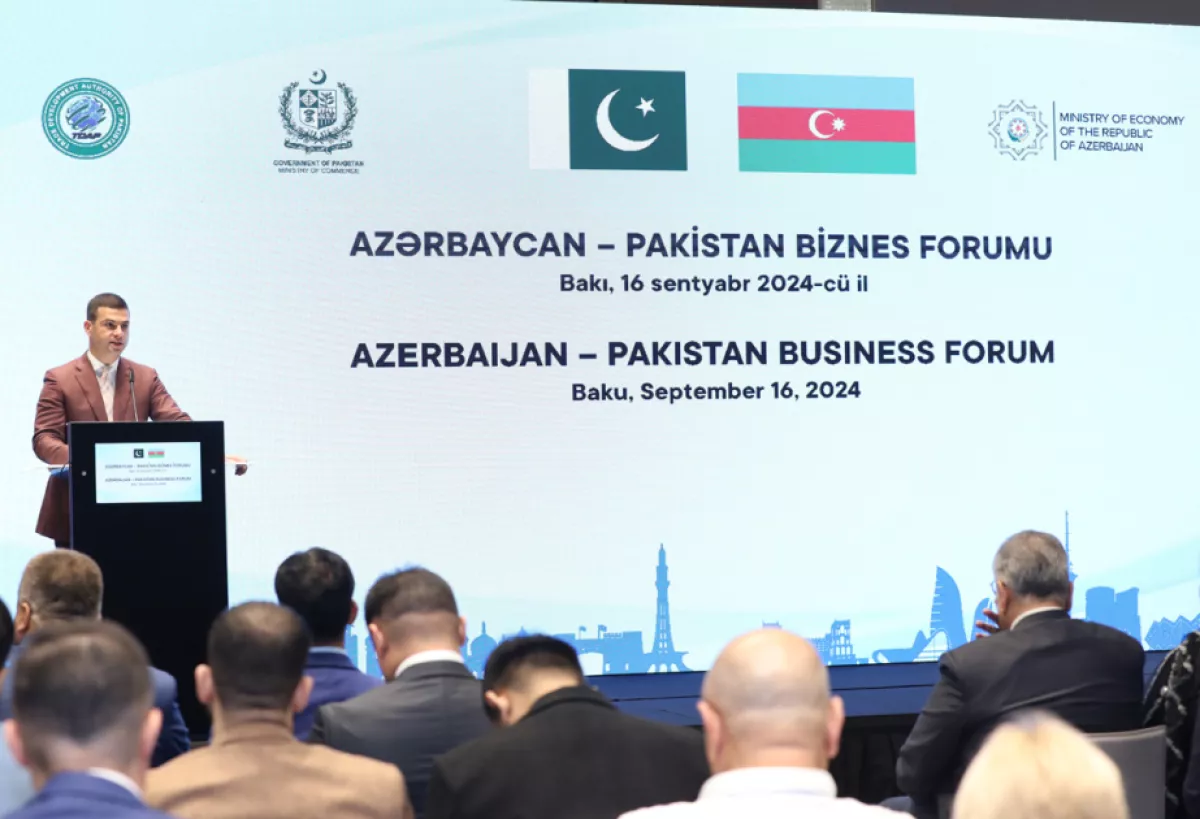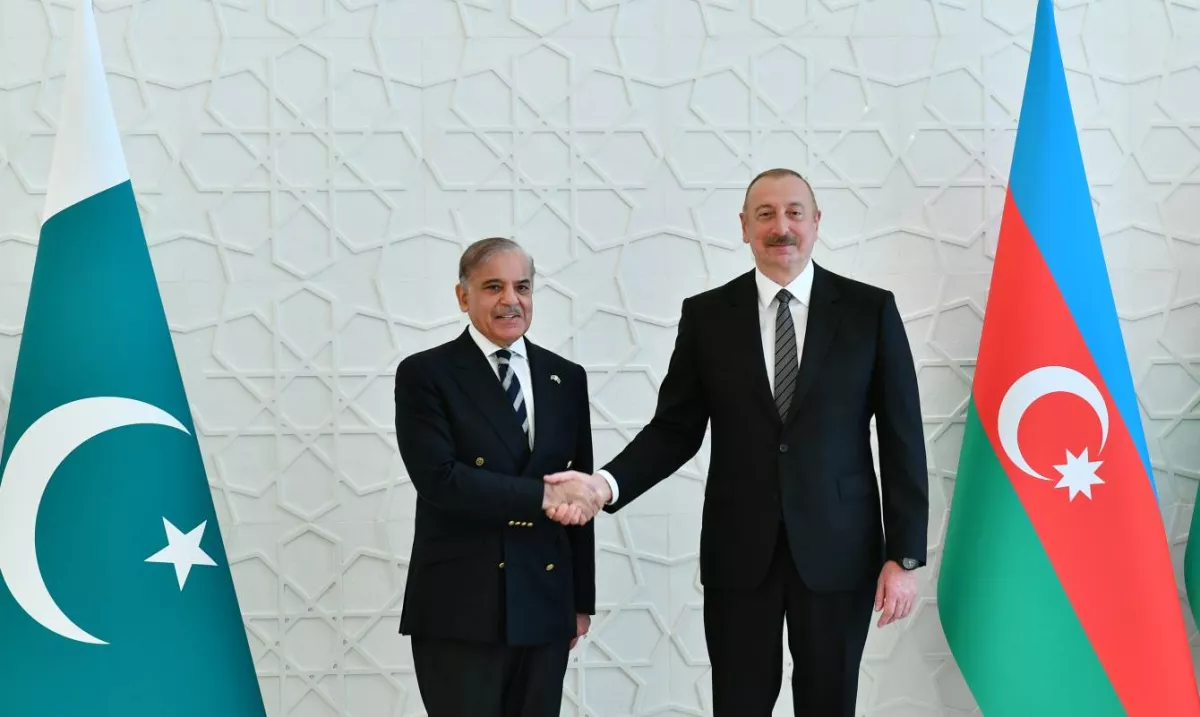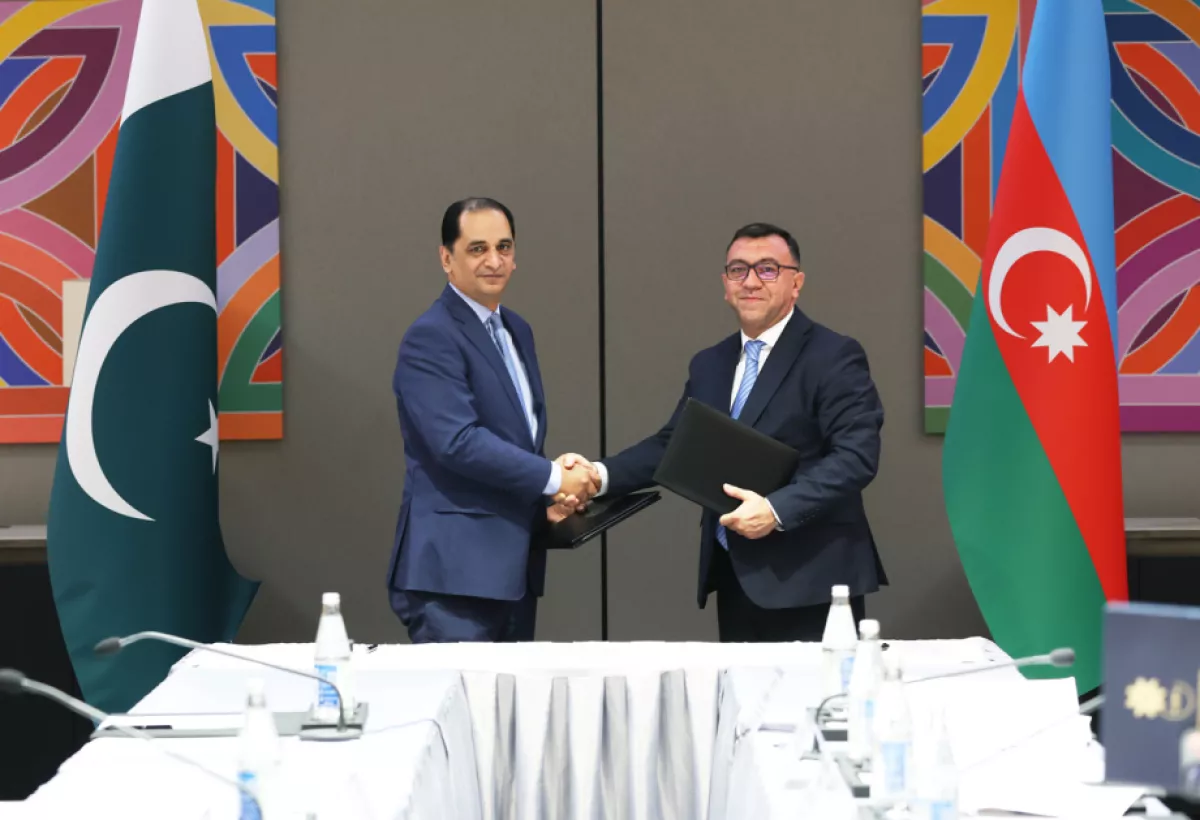Azerbaijan, Pakistan set ambitious goals to enhance cooperation From trade to investment
In recent years, trade and economic relations between Azerbaijan and Pakistan have undergone rapid development. Last year, the two friendly states made significant progress in the energy and tourism sectors, and recently, agreements were signed on preferential trade and transit corridors. Building on this foundation, Baku and Islamabad aim to increase trade turnover, promote investment projects in the non-oil sector, establish joint ventures, and implement initiatives in "green" energy, among other areas. These and other business prospects were discussed at the Azerbaijan-Pakistan business forum held recently in Baku.
Historically friendly relations between Baku and Islamabad became allied during the 44-day war for the liberation of Karabakh and have since evolved with new options that significantly expanded mutual trade and established priorities for investment cooperation. These trends are most evident in the growing dynamics of mutual trade: while the Azerbaijan-Pakistan trade turnover was $13.283 million in 2020, it reached $27 million by the end of 2023.
A significant factor in this growth was the intermediary services provided by SOCAR Trading, a subsidiary of the State Oil Company of Azerbaijan, which facilitated the supply of liquefied natural gas (LNG) purchased from third parties to the Pakistani market. This was significantly influenced by intergovernmental agreements reached in June 2023, under which SOCAR Trading supplied LNG at preferential prices (with a 30% discount) to the state company Pakistan LNG Ltd (PLL).

However, alongside the development of cooperation in fuel supplies, a key task for both countries has been to increase non-oil trade and energize investment cooperation. An important step toward achieving these goals was taken in July 2024 during Azerbaijani President Ilham Aliyev’s state visit to Pakistan. During the visit, intergovernmental agreements on transit trade (TTA) and preferential trade (PTA) were signed.
Additionally, approximately fifteen documents were signed in Islamabad, including memorandums of understanding on cooperation in the privatization of state assets, mineral resources and geology, information and communication technologies, tourism, air transport, and the development of small and medium-sized enterprises. Following the visit, the legal and regulatory framework governing the cooperation between the two countries expanded to over fifty intergovernmental, interagency, and departmental documents.

"Implementing the preferential trade agreement between Azerbaijan and Pakistan will open new opportunities for trade and investment between the two countries," stated Azerbaijani Deputy Minister of Economy Samad Bashirli during the Azerbaijan-Pakistan business forum in Baku. "We have many areas where this agreement can be applied; the PTA agreement covers nine key products from both sides," he added.
According to the Ministry of Economy, Azerbaijan will apply an average fiscal tariff of 4.7% (ranging from 2% to 5%), while Pakistan's average tariff will be 4.6% (ranging from 2% to 12%).
To optimize trade relations using the new opportunities provided by the preferential trade agreement, Azerbaijan plans to send an export mission to Pakistan either at the end of this year or the beginning of next year. "Our countries have significant potential for cooperation at the level of private non-oil sector companies, and efforts are planned to promote these opportunities through trade preferences," said Yusif Abdullayev, Executive Director of the Export and Investment Promotion Agency (AZPROMO), who participated in the business forum.
To diversify trade contacts and expand the range of goods, the possibility of establishing an Azerbaijani Trade House and a joint Chamber of Commerce and Industry in Pakistan is being explored. Meanwhile, the Azerbaijani Small and Medium Business Development Agency (KOBIA) plans to expand its partnership with the Islamabad Chamber of Small Business and Industry and the Federation of Pakistan Chambers of Commerce and Industry at the inter-agency level.
Pakistani partners are also prepared to take similar steps, as the number of Pakistani companies in Azerbaijan is rapidly increasing. As of early August, over 3,700 Pakistani companies are registered in Azerbaijan, primarily operating in sectors such as transport, construction, trade, and services. Pakistan is also expanding its exports to Azerbaijan, including cotton fabrics and clothing, synthetic dyes, polyvinyl chloride (PVC), automotive tires, medicines, tropical fruits, rice, and more.
Azerbaijani producers and suppliers are equally interested in the trade preferences. Preliminary estimates indicate that the Pakistani market has a demand for food products, nitrogen fertilizers, polymers, methanol, and other petrochemical products from Azerbaijan. In the future, Azerbaijan plans to establish exports of rolled products and other non-ferrous metallurgy items, measuring and control instruments, energy equipment, optical and power cables, certain types of construction materials, and other products manufactured in Azerbaijani industrial clusters.
In Pakistan, it is also believed that the agreements on transit and preferential trade signed in July this year will provide a significant boost to bilateral trade and economic relations. "Azerbaijan and Pakistan have substantial potential for further developing trade, and the preferential trade agreements will make markets more accessible for exporters, importers, carriers, and investors. This will benefit not only our brotherly countries but also the region as a whole," noted Pakistan's Federal Minister for Trade, Jawad Paul, during the forum.

The two countries have equally ambitious plans for investment cooperation. In July 2024, preliminary agreements were reached in Islamabad to invest $2 billion in mutually beneficial Azerbaijan-Pakistan investment projects in the first phase. Specifically, the investment portfolio of several Pakistani companies includes projects for localizing light industry enterprises in Azerbaijan, including apparel, textiles, and pharmaceuticals, with plans to introduce joint products to neighboring markets. These promising directions were discussed during the business forum, which continued with B2B meetings. Pakistani entrepreneurs were provided with information on the favorable opportunities created in the liberated territories and industrial parks of Azerbaijan and were invited to invest in agriculture, light industry, and tourism.
Notably, over the past two years, the recreational sector has become one of the drivers of cooperation between the two countries. During this period, visa procedures have been simplified and digitized, with Pakistan removing the e-Visa fee for Azerbaijani citizens. Additionally, the number of flights operated by Azerbaijan Airlines (AZAL) and Pakistan International Airlines (PIA) between major cities—Baku, Islamabad, Karachi, and Lahore—has significantly increased. In August, President Ilham Aliyev signed a decree approving the "Agreement on cooperation in the field of tourism between the Government of the Republic of Azerbaijan and the Government of the Islamic Republic of Pakistan." As a result, in just seven months of the current year, the number of tourists from Pakistan to Azerbaijan increased by 51%, surpassing 40,000 individuals.
According to Azerbaijani Deputy Minister of Economy Samad Bashirli, the two countries also have significant potential for joint projects in the fields of space, transportation, tourism, hydrometeorology, and climate change mitigation. "We are also exploring investment opportunities in Pakistan’s oil and gas sector and in the development of precious metal resources."
Another important area for Azerbaijan-Pakistan cooperation is the "green" sector. Yusif Abdullayev, Executive Director of AZPROMO, invited Pakistani companies to participate in the UN Climate Conference COP29, which will open opportunities for developing collaboration between the countries in the field of renewable energy (RE).








